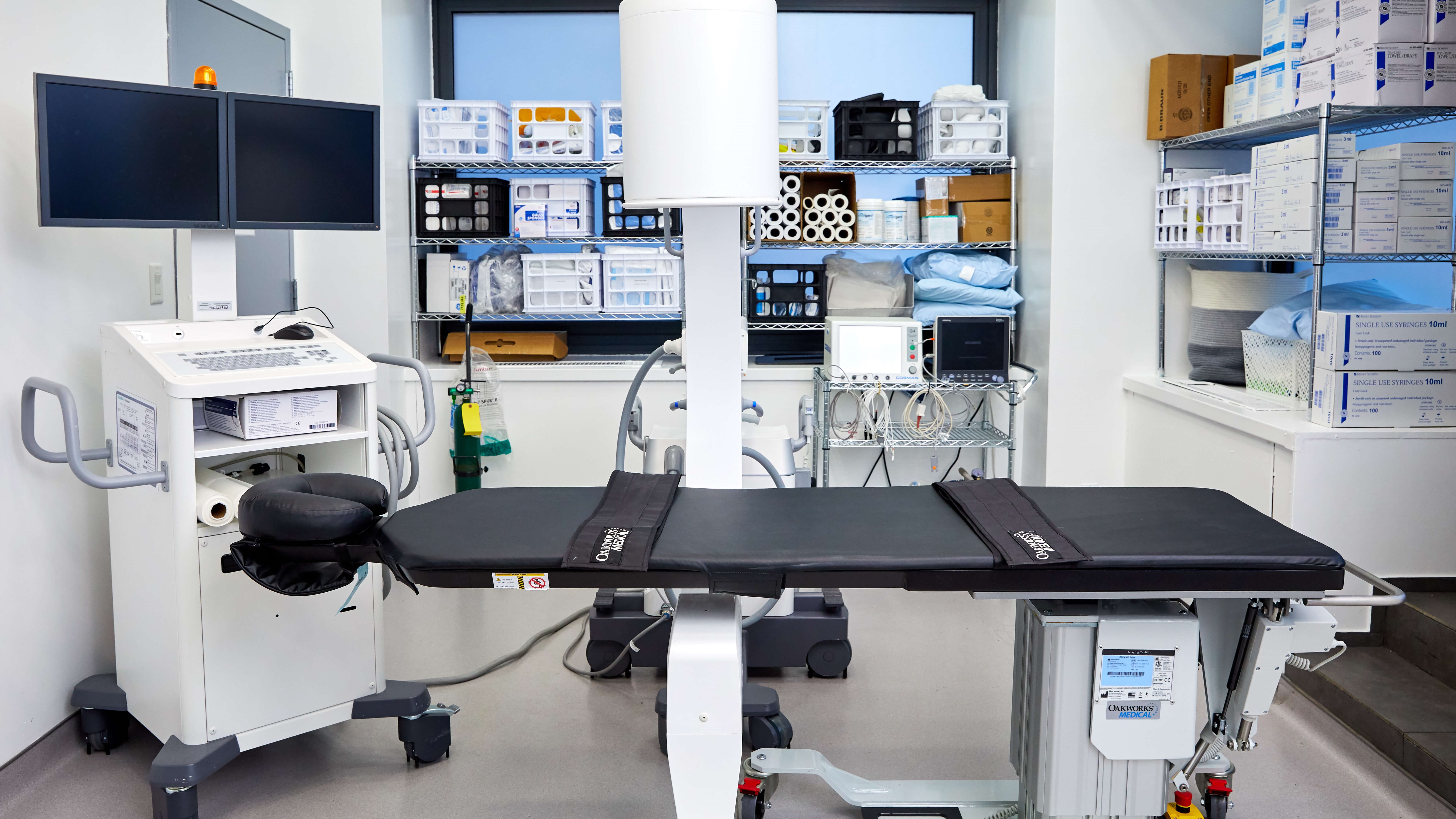Genicular Nerve Blocks and RFA: Targeted Solutions for Chronic Knee Pain
&srotate=0)
Knee pain ranks among the most frequent musculoskeletal complaints, accounting for nearly one-third of all such consultations in primary care settings. In the United States alone, approximately 25% of adults over age 45 report frequent knee pain. This prevalence highlights the need for safe and effective interventions. Although physical therapy and acupuncture are familiar non-surgical options, targeted techniques like genicular nerve blocks and radiofrequency ablation (RFA) have emerged as promising methods for managing persistent knee pain. By aiming directly at the nerve pathways responsible for pain transmission, these minimally invasive procedures can offer sustained relief for individuals who have not responded well to more conservative treatments.
What Are Genicular Nerve Blocks?
A genicular nerve block is a procedure that involves injecting a local anesthetic (and sometimes a corticosteroid) near the nerve branches that surround the knee joint. These nerves—collectively referred to as the “genicular” nerves—play a key role in transmitting pain signals from the knee to the brain. By momentarily numbing or reducing inflammation around these nerves, genicular nerve blocks may help decrease pain and improve knee function for those suffering from moderate to severe discomfort.
Minimally Invasive
This procedure is done through small, precise injections rather than surgical incisions.
Pain Relief for Multiple Conditions
It may help manage chronic knee pain from osteoarthritis, post-surgical pain, or even severe joint degeneration.
Quick Recovery
Most patients experience little downtime, making it an appealing option for those seeking faster relief.
Genicular nerve blocks can serve both as a diagnostic tool—helping confirm that pain is indeed coming from the genicular nerves—and as a temporary treatment that can be repeated if needed. Consult your healthcare provider to determine whether a genicular nerve block is a suitable approach based on your individual condition.
What Is Radiofrequency Ablation (RFA)?
Radiofrequency ablation (RFA) is another minimally invasive technique commonly used to manage long-term knee pain by disrupting pain signals. During RFA, radio waves create controlled heat lesions around selected nerve branches—such as the genicular nerves—which may block or slow the transmission of pain to the brain. Because RFA does not require open surgery, it can be an attractive option for individuals who have tried conventional treatments (e.g., medications, bracing, physical therapy) without success.
Some key advantages include:
1. Long-Lasting Relief
RFA’s effects often persist for several months and can be repeated if nerve pathways regenerate.
2. Targeted Approach
The procedure focuses on specific nerves, minimizing effects on surrounding tissues.
3. Short Procedure Time
The procedure typically lasts under an hour, often performed with image guidance to ensure precise needle placement.
Indications for RFA
Radiofrequency ablation for knee pain is generally considered when:
1. Conservative Treatments Have Failed
If you’ve tried physical therapy, medications, or lifestyle modifications without sufficient relief, RFA may be a next step.
2. Persistent Chronic Knee Pain
Individuals with knee osteoarthritis or degenerative joint disease who have ongoing pain may benefit.
3. Recovery from Knee Surgery
RFA may help manage discomfort in patients who still experience moderate to severe knee pain following a procedure.
However, RFA might not be appropriate for everyone. Patients who are pregnant, have bleeding disorders, or have uncontrolled infections in the area may need to pursue alternative interventions. Always discuss your complete health profile with a qualified medical professional before proceeding with RFA.
Genicular Nerve Blocks and RFA at Ospina Medical
At Ospina Medical, Dr. Kohler and our team typically perform a diagnostic genicular nerve block in the weeks leading up to an RFA. If the block relieves pain substantially, it confirms that the genicular nerves are key contributors to your discomfort. Only then do providers proceed with RFA to enhance your likelihood of success.
Procedure Steps
- Diagnostic Block: A local anesthetic is injected around the genicular nerves.
- Confirmation of Pain Source: Pain relief indicates that RFA could be effective.
- Radiofrequency Ablation: Under fluoroscopic (X-ray) guidance, heat is applied to disrupt nerve function, impeding pain signals.
This combined approach aims to pinpoint the exact source of pain, offering a tailored solution that may result in sustained improvement in knee function and mobility.
Benefits of Genicular Nerve RFA Treatment
Individuals who undergo genicular nerve RFA often report:
Significant Pain Reduction
Many experience lowered pain levels within days to weeks, often lasting several months.
Less Reliance on Pain Medications
Decreased discomfort may lead to fewer analgesics.
Improved Mobility
With reduced pain, patients can often engage more fully in physical therapy or everyday activities.
Minimal Downtime
Most people resume normal routines quickly, making it a convenient choice for active lifestyles.
Genicular Nerve RFA Outcomes
Following RFA, mild soreness or sensitivity in the treated area can occur but generally subsides with simple measures such as icing for 15–20 minutes at a time. Pain relief can last anywhere from six months to a year or more, although nerve regrowth can cause recurrence of symptoms over time. Should discomfort return, the procedure is typically safe to repeat about every six months.
Getting Started
From chronic osteoarthritis to post-surgical knee pain, genicular nerve blocks and radiofrequency ablation can offer a path toward meaningful relief for individuals who have exhausted conservative options. By targeting the nerves responsible for pain transmission, these minimally invasive treatments may help patients regain mobility and enhance quality of life. While neither option is a guaranteed solution for everyone, these procedures are part of the array of treatments available at Ospina Medical. Schedule your initial consultation with Dr. Matthew Kohler today to find out if genicular nerve blocks, RFA, or other therapies could be the right strategy for you.
Written By: Kaitlyn Tsai
Edited By: Camden Rowe
Medically Reviewed By: Matthew Kohler, MD